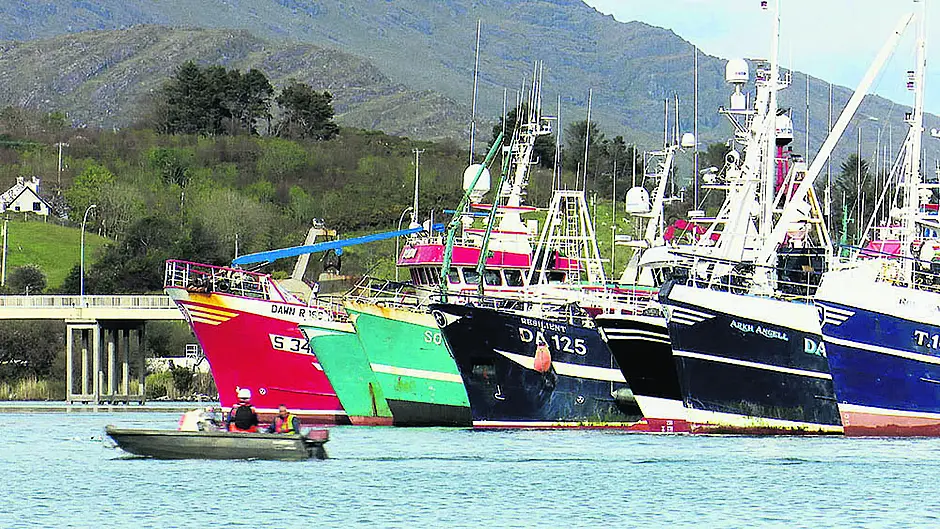THE three words on the minds of south west fishermen’s representatives following last week’s EU Council of Fisheries Ministers meeting to finalise fish quotas for 2020 are, they say, ‘disappointment, confusion and fear.’
The efforts by members of the Irish South & West Fish Producers Organisation (IS&WFPO) in the months and weeks leading up to this very important and critical December meeting ‘seemed to dim like a candle slowly burning out and all that was left hanging in the air was a wisp of smoke that disappeared right in front of our eyes,’ according to CEO Patrick Murphy.
Fishing trials carried out, witnessed and recorded by on-board BIM gear technologists, using newly designed fishing nets, in Irish South and West boats, proved that massive improvements in reducing the numbers of cod and whiting in the catches is not just possible, but is guaranteed, he claimed.
‘After our initial jubilation in seeing industry’s joint submissions and consultations with the Minister’s negotiating team, resulting in these measures being included in the dying moments of the negotiations, our mood quickly turned, like milk left out in the sun, to a sour taste in our mouths as the potential increase of 300% in recovered and healthy haddock stocks never materialised while we were granted a miserable spirt crushing 30%.
‘This kick in the teeth was made worse by the fact that our scientists advised seeking a 100% increase,’ said Mr Murphy.
‘If this was not enough to take, hake stocks where there was only a 5% reduction in size since 2019 was slashed by 21% once again contrary to the advice to use the upper level of the scientific advice which would have resulted in no cuts.’
Patrick Murphy said that ‘Whiting, a traditional strong fishery for Irish vessels has seen cuts of various sizes in all areas, and a total cut combined would need a 34% increase next year to return our catches to 2019 levels.
Nephrops, commonly known as Dublin Bay prawns, and representing Ireland’s second most important fishery saw an overall slashing for the second year in a row of 15%.
Although there’s a slight increase in monk in Area 7, this was not only cancelled out by the massive cut of 30% in Area 6, but overall, we are down 187 tonnes, which is a loss of 5.4%.
Cod, the perennial problem child, sees an overall cut of 42.2% on 2019’s quota.
The only stock that has seen an increase for the demersal sector is Haddock, up 11.7% in all areas combined despite the announced 30% increase in Celtic Sea with megrims receiving a slight increase of 3.5%
Ireland, with the majority of Europe’s accessible fishing grounds due to the geological position of our island nation on the continental shelf, still remains a small recipient in the European context when it comes to the share-out of this valuable renewable resource.
Referring to their confusion, Mr Murphy said: ‘This year’s council has completely upended the percentage increases Irish demersal fishermen gained last year by stripping them away this year quoting a mixed stock advice focus as the reason.’
The industry accepts reductions in quotas are required to protect sustainable stocks, but ‘with the unknown consequences from the fall-out from Brexit, these massive cuts to the earnings of Irish whitefish fishermen could not come at a worse time.’
‘As presented by our Minister Michael Creed to our delegation, we have as a country received an overall gain of earnings for our fishing fleet from €271m in 2019 to €275 for 2020, a welcome increase of €4m.
Unfortunately however, the vast majority, approaching 99% of Ireland’s fishing fleet, will not benefit by one euro from this increase, but will in fact be down €14 million on last year’s figures.
‘This will undoubtedly have devastating effects on the majority of our fishermen, their crews, families and the coastal communities that so depend on them,’ he added.







